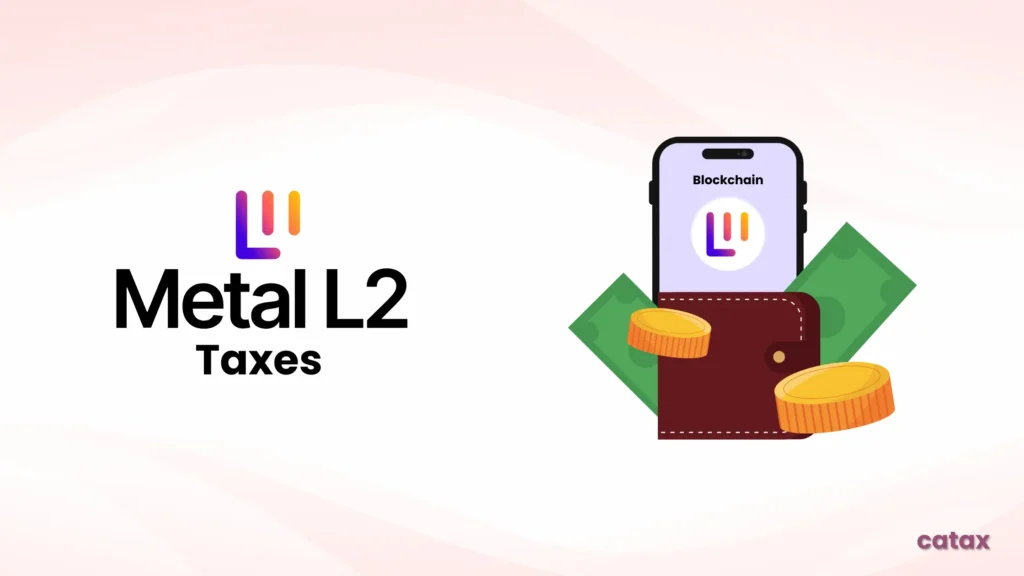Cryptocurrency tax laws vary across the globe, and Moonriver (MOVR) is no different. Whether you buy, sell, trade or stake Moonriver you may have to pay taxes, depending on how and where you tax obligations. It is of utmost importance that you know the rules applicable to the crypto activities in your country so that you can stay compliant and not face penalties you didn’t expect.
This guide will explain everything you need to know about the taxes on Moonriver in plain and simple language.

- How to Connect Your Moonriver Wallet to Catax
- Are Moonriver (MOVR) Transactions Taxable?
- Can You Deduct Trading Fees and Other Costs?
- How Is Moonriver (MOVR) Taxed Based on Holding Time?
- How Is Staking Income from Moonriver Taxed?
- Can You Use Moonriver Losses to Lower Your Taxes?
- How to Stay Compliant with Moonriver (MOVR) Tax Regulations
How to Connect Your Moonriver Wallet to Catax
To properly track your Moonriver transactions and calculate your taxes, you can connect your wallet to Catax. It’s a straightforward process that ensures all your activity is captured automatically:
- Open your Moonriver wallet or block explorer (such as MetaMask, Trust Wallet, Ledger, etc.).
- Locate your public wallet address and copy it.
On Catax:
- Log in to Catax and select your country.
- Choose Chain and then search for Moonriver Wallet.
- Paste your public address and click Connect.
Catax will now sync your transactions automatically and help you calculate your tax obligations in real-time.
Calculate My Taxes ➤Are Moonriver (MOVR) Transactions Taxable?
Yes, most countries classify cryptocurrencies in a manner that makes the transactions you carry out taxable. How Moonriver transactions are taxed will depend on your use of MOVR:
- Selling MOVR for profit: If you sell Moonriver for a higher price than you paid, your profit is taxed as a capital gain.
- Swapping MOVR for other crypto: This is usually a taxable event, even if you do not cash out to fiat.
- Paying for goods or services with MOVR: If the value of Moonriver has appreciated since your purchase, using it to pay for something can result in capital gains tax.
- Earning MOVR by staking: In many jurisdictions, rewarding for staking is taxed as income at the instant received.
- Getting paid in MOVR: If you get paid in Moonriver for a product or service, that is usually taxable income based on the value of MOVR on that date.
Since crypto tax rules vary by country – you are generally best to refer to local regulations or something like Catax which applies the correct rules based on your location.
Can You Deduct Trading Fees and Other Costs?
This is a common question asked by Moonriver users. The answer to this question is determined by your country’s tax rules. The following are examples of expenses you might be able to deduct depending on your country:
- Exchange fees charged when purchasing or selling MOVR.
- Network fees you pay while transferring MOVR between wallets.
- Security costs such as hardware wallets or other services to help secure your private keys.
Not every country will allow for all of these. In some countries, only the price of the purchase (cost basis) is permitted while other fees may not be a deductible expense. Each country has its own rules, please check your local laws or consult a tax professional to be safe.
You can also check out our Country-Specific Guide for Crypto in Your country. This guide provides insights on regulations, tax implications, and compliance measures breifly explained for each country.
How Is Moonriver (MOVR) Taxed Based on Holding Time?
The amount of tax you pay on profits from Moonriver can vary based on how long you held the tokens:
- Short-term holdings: If you sell MOVR within a year of buying it, you might have to pay higher tax rates similar to income tax rates.
- Long-term holdings: If you hold your MOVR for one year (or larger) many countries apply reduced tax rates to long-term capital gains.
- Flat rate countries: Some countries simply apply the same tax rate no matter how long you hold your crypto
Understanding your country’s approach to crypto holding periods can help you decide when to sell to minimize taxes.
How Is Staking Income from Moonriver Taxed?
Staking Moonriver can provide rewards, and those rewards are generally taxed somehow. There are usually two ways countries tax staking income:
- Taxed as income: Some countries tax staking rewards at the point of receipt. In other words, you have to report them as part of your income for annual tax purposes, whether you sell them or not.
- Taxed as capital gains: Other countries treat staking rewards as capital gains and wait until you sell or exchange your staking rewards. This means you are taxed on any profits, or gains, earned when you finally sell your rewards.
Understanding how staking income is treated in your country is important since each country requires different reporting. If staking rewards are taxed as income, you may owe tax money unless you never sell your staking rewards at all.
Can You Use Moonriver Losses to Lower Your Taxes?
Sure, in many countries, if you sell MOVR for less than you paid, then you can use the loss against your taxes. In regards to losses, here’s how losses are typically treated:
- Offsetting gains: You can use your Moonriver losses to offset profits on other crypto or even stocks.
- Carrying forward losses: If you have losses in a particular year and you do not have any gains, some jurisdictions allow you to carry your losses forward to offset taxes in the future.
- No deductions: In a few cases, countries simply don’t allow deductions for crypto losses, so you’ll want to check your local information.
Make sure you keep records of all your transactions so you can prove your losses if needed.
How to Stay Compliant with Moonriver (MOVR) Tax Regulations
As governments become stricter with regulations on taxes related to crypto, it is important to make sure you are following all of the guidelines and rules. The following is a good list of ways you should be compliant:
- Learn how your country taxes Moonriver: Is it treated like income, capital gains, or business income?
- Understand what costs you can deduct: Know whether you can deduct trade fees, staking rewards, and costs associated with keeping your crypto safe.
- Keep accurate records: Keep track of all Moonriver transactions. Not just sales or trades, but also staking, and anything you spend on Moonriver.
- Use a crypto tax calculator: Catax is a good source for calculating and filing appropriately,
- Talk to a tax professional: If you don’t understand, it’s smart to consult with a tax advisor that knows the crypto laws in your country.


